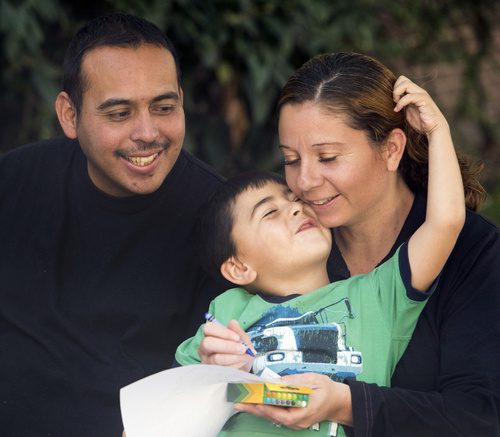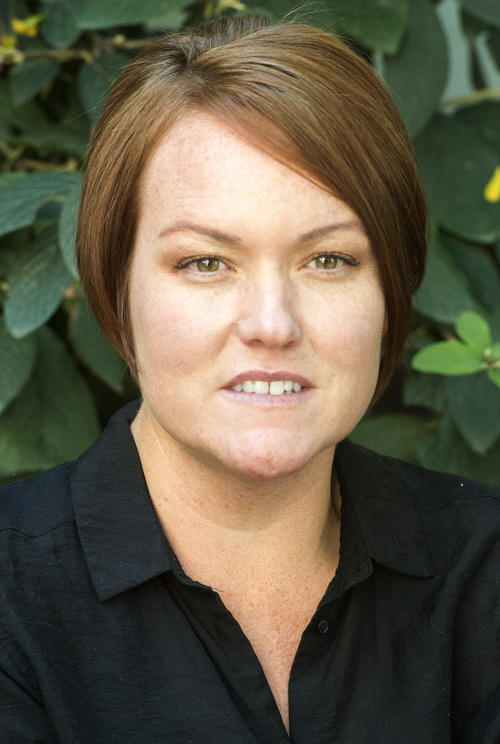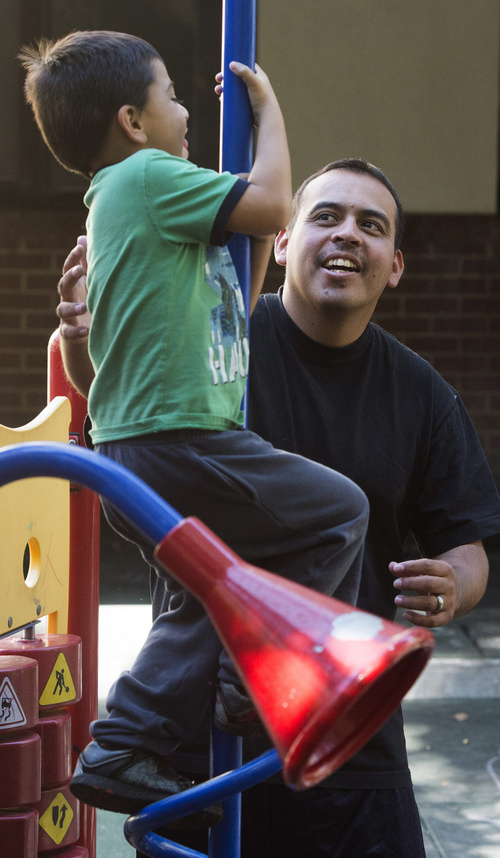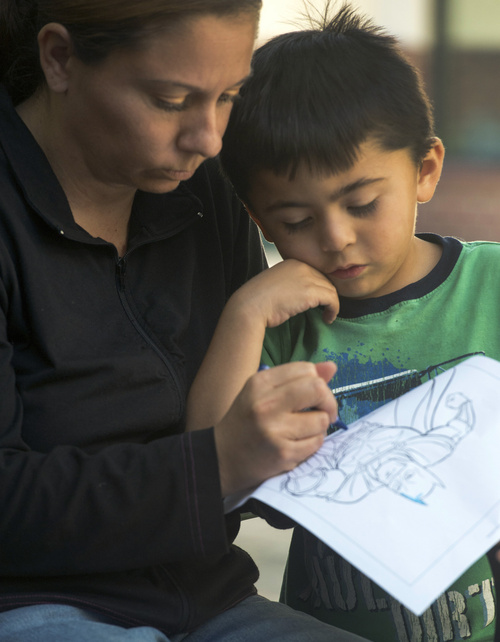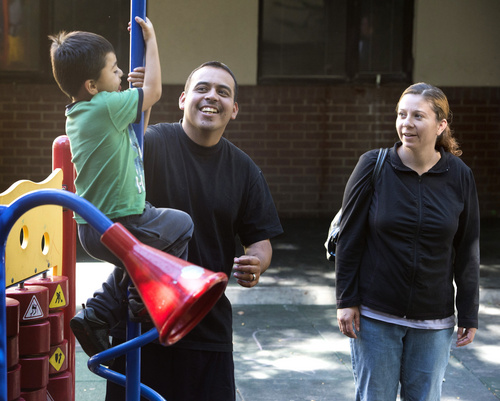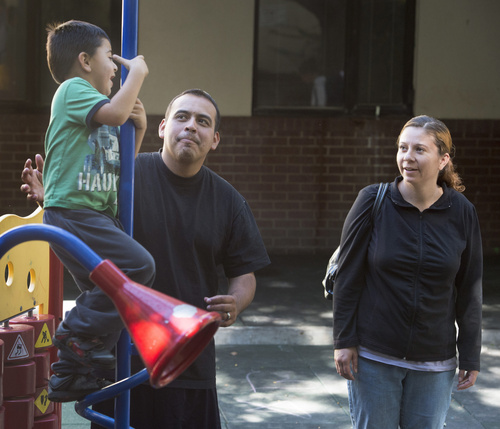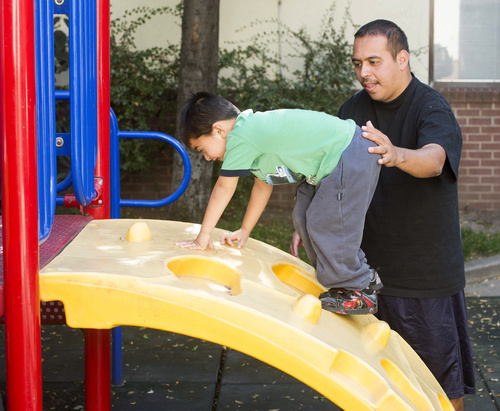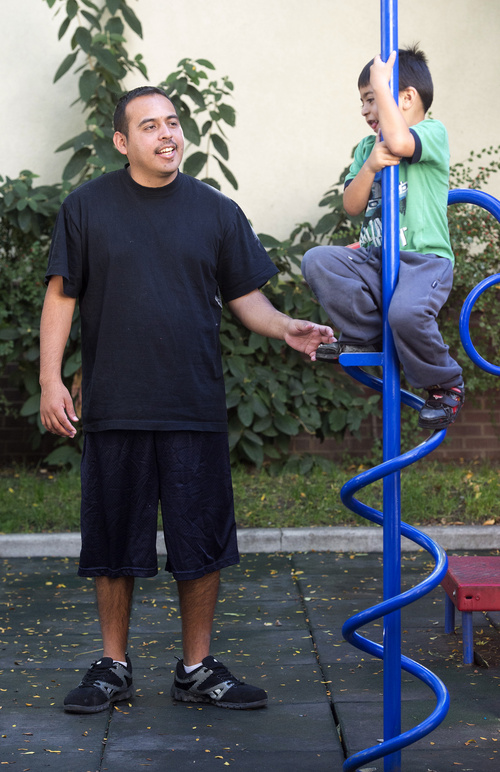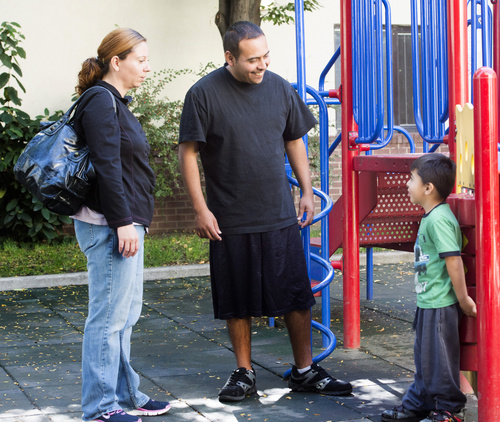This is an archived article that was published on sltrib.com in 2014, and information in the article may be outdated. It is provided only for personal research purposes and may not be reprinted.
Sometimes, becoming homeless stems from a series of unfortunate events.
One is survivable; three is catastrophic.
After falling sick, straying from family members who they felt manipulated them and losing jobs because their rides to work bailed, Tony and Cynthia Martinez showed up at Salt Lake City's homeless shelter with their sons, now 4 and 10.
The family moved from Modesto, Calif., a few years ago and briefly stayed with relatives in southern Utah.
"Ever since then, we've kind of been in a hole," said Tony.
They have been in and out of the Road Home three times, unable to find stable work.
But life may be changing for the young family.
The parents say they are on the way to moving into an affordable housing complex downtown. There, they will pay rent equal to 30 percent of their income, drop their younger son at on-site daycare and, they hope, walk to work.
The Martinez family is among those who have not been directly helped by Utah's drive to end chronic homelessness, defined as being without housing for at least a year or four times in three years.
The thousands of Utahns who lose a home or apartment due to a financial crisis don't qualify for the housing developed to tackle chronic homelessness. Still, the vast majority find homes in weeks or months.
Shelters do have more room for those like the Martinez family now that Utah's chronically homeless population has dropped by more than two-thirds over the past decade, notes Gordon Walker, director of the state Division of Housing and Community Development.
Walker says no one is turned away by overcrowding, even on the coldest winter night.
Salt Lake County, the Road Home and a host of other agencies aim to help the Martinez family and others by first working to get them into a subsidized permanent home. Then comes counseling, substance abuse programs or any other needed resources.
The approach is working, and it's freeing up much-needed space in shelters and clinics, said Melanie Zamora, director of housing at the Road Home.
But there's still a long way to go, Zamora said. An estimated 13,621 Utahns are homeless this year. "We have not begun to breathe a sigh of relief."
On a recent Friday, Tony said he wants his sons to grow up in a better environment than he did. His own youth involved beatings from his mother's boyfriend and years of drug dealing, running with a gang and ditching school.
"Negativity, sadness, poverty. That was what I saw, so I thought that was the way to go," he said. "I grew up on the streets."
Cynthia Martinez, who is planning to enroll in nursing courses at Salt Lake Community College in coming months, is optimistic.
"We feel like we're finally getting the help we need."
aknox@sltrib.com


